Article and photos by Michele Wisla
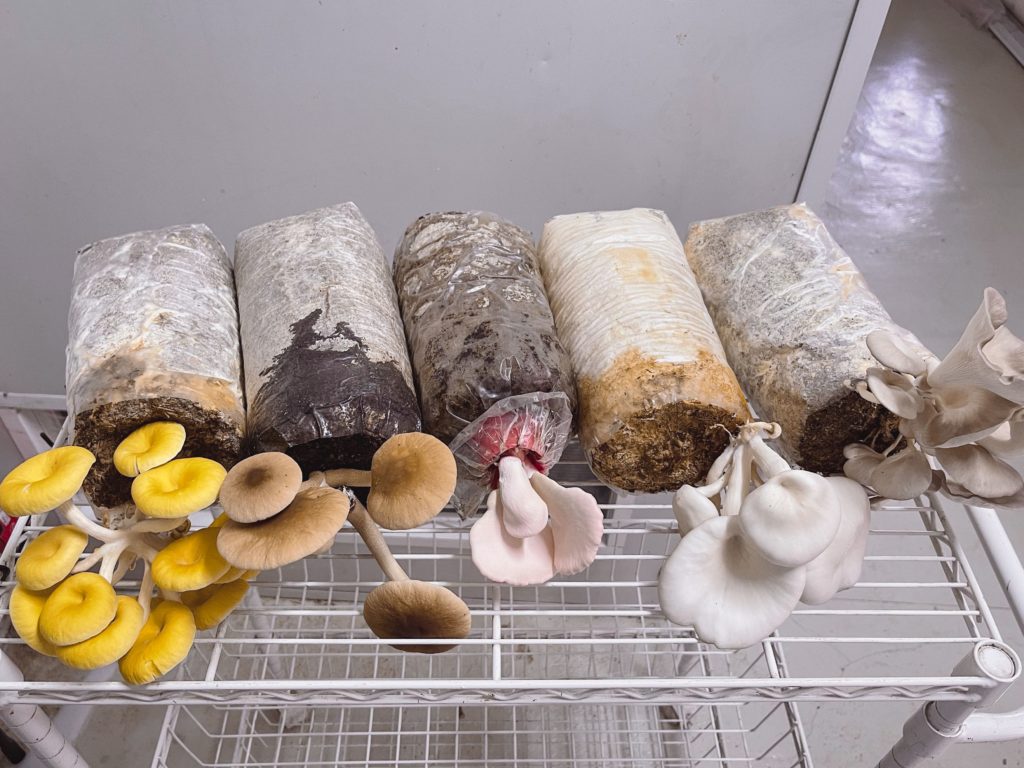
“There is no such thing as ‘away’. When we throw anything away, it must go somewhere.”
– Annie Leonard
As we started off for our afternoon tour and workshop on 28 May 2022 at Urban Mushroom, a company & farm creating sustainable local produce in Hong Kong, we took note that it’s the rainy season and we’d been warned to wear long sleeves and pants, as well as bring plenty of mosquito repellent. While making the trek to Tuen Mun however, a beautiful blue sky and white fluffy clouds came out of hiding. Although very hot, it was the perfect day. Greeted at the gate by Founder Russell Kong, we made our way to a nice sized room that easily fit our small group.
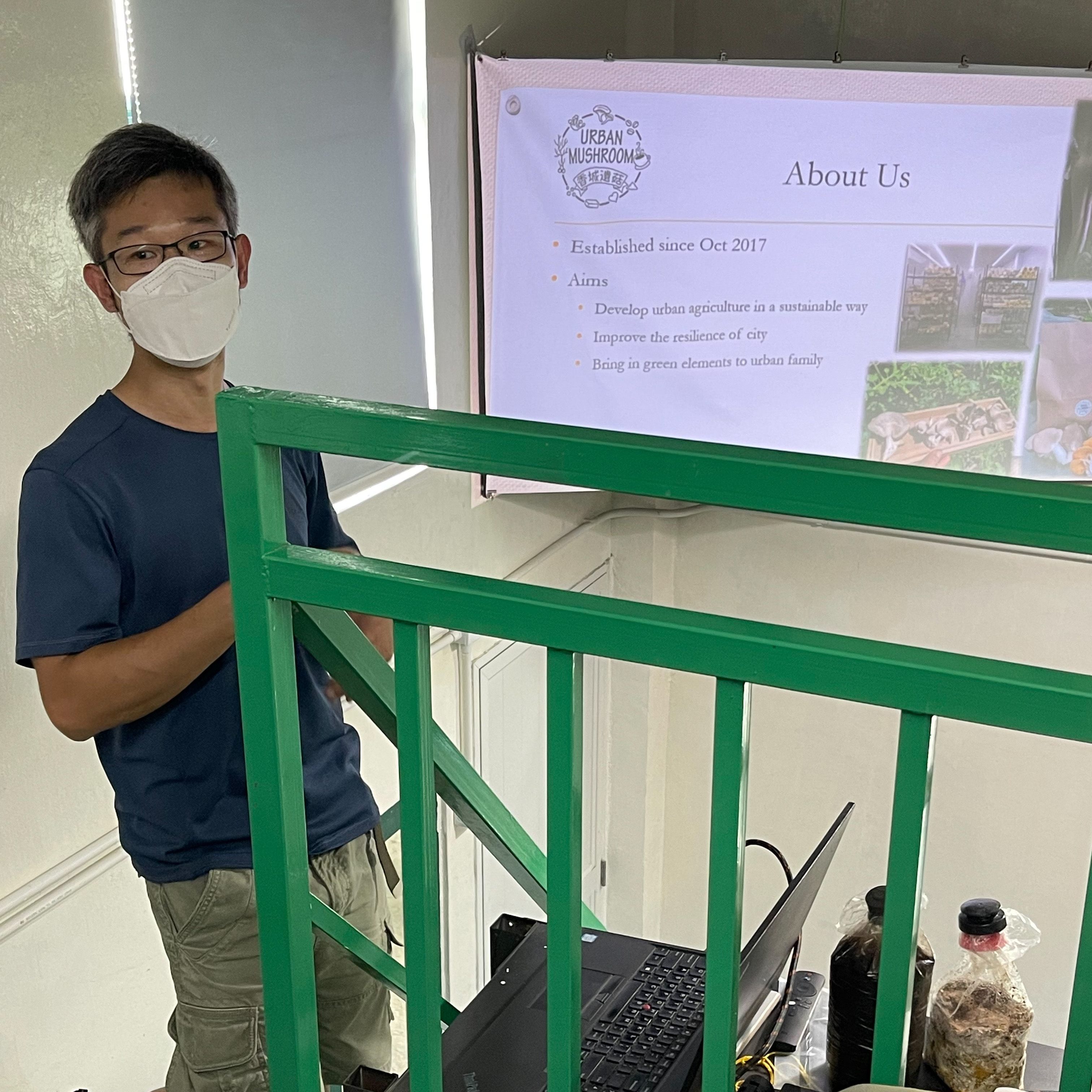
Russell started with a slide presentation introducing us to how he came to cultivate mushrooms after coming back to Hong Kong from the U.K. with a sustainable agricultural degree.
His family owns a small lot that used to house pigs so he wanted to use the space for some type of agricultural food. However, it’s mostly an enclosed space with a roof, so he wouldn’t be able to grow crops that need sunlight unless he spent time and money tearing the pig shelter down.
He realised that mushrooms have a much lower light requirement than other crops so he embarked on finding out which type might grow best in Hong Kong’s climate and how to grow them in a sustainable way.
His first hurdle was figuring out what type of material mushrooms could grow on. Normally they might grow on straw or compost found on a country farm. He started to look at what types of materials a modern city like Hong Kong might have in abundance that would be suitable.
He realised with so much coffee drinking here, leftover coffee grounds would be both sustainable, and inexpensive (or free as the case is). He first paired the grounds with cardboard. However, because of pollution and safety issues with cardboard, he migrated to using wood chips and sawdust mixed with the coffee grounds. He needs to use both types of materials to have the balanced nutrients and energy that the mushrooms need to grow.
A social enterprise currently supplies the coffee grounds. They procure them from hotels, restaurants, and offices in Hong Kong. The wood chips are applied for through a government program.
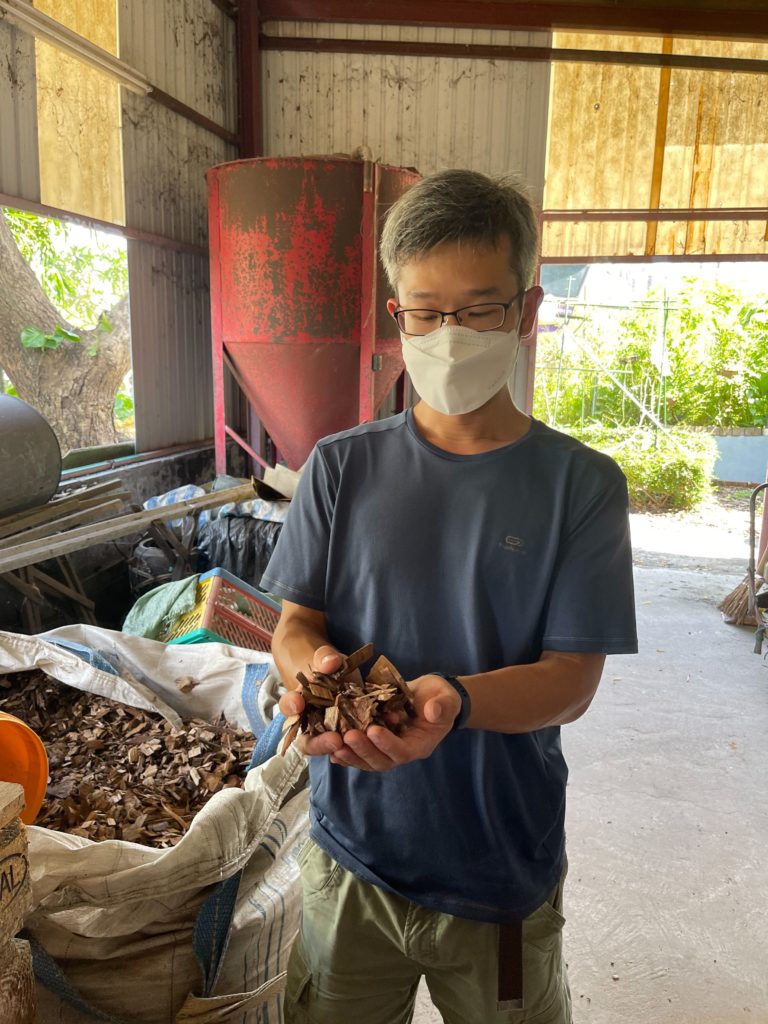
In order to get the material ready for the mushrooms he must first complete a two-step process of composting and sterilisation. The coffee grounds and the wood chips are mixed together and left to compost for just a couple days. Russell doesn’t strive for a mature compost as he just wants the bacteria to digest some of the oils and material inside, not all of the nutrients. The composting process is pretty short, only a day or two.
He then puts the compost material in individual bags and sterilises the bags in a large tank for 90 minutes. After sterilisation, he inoculates the bags with mushroom spores, leaving the bags in a room with air filters that keep bacteria out, waiting several days for the mushroom spores to cover the surface of the compost material.
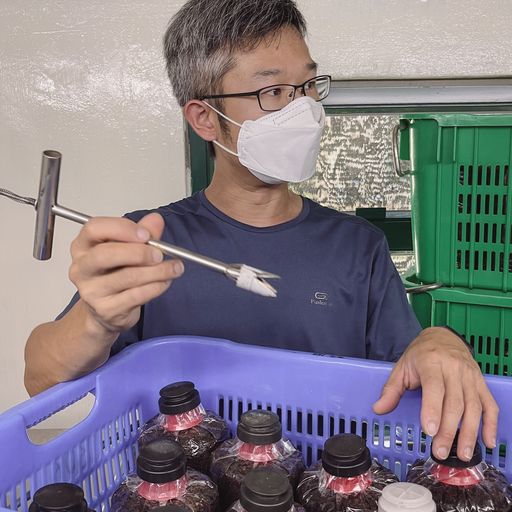
Although other plants may begin as seeds, mushrooms start as spores. The spores need a sterile environment in a growth medium (the wood chips, sawdust, and coffee grinds) where they can begin to grow as mycelium. This mycelium is what covers the compost material.
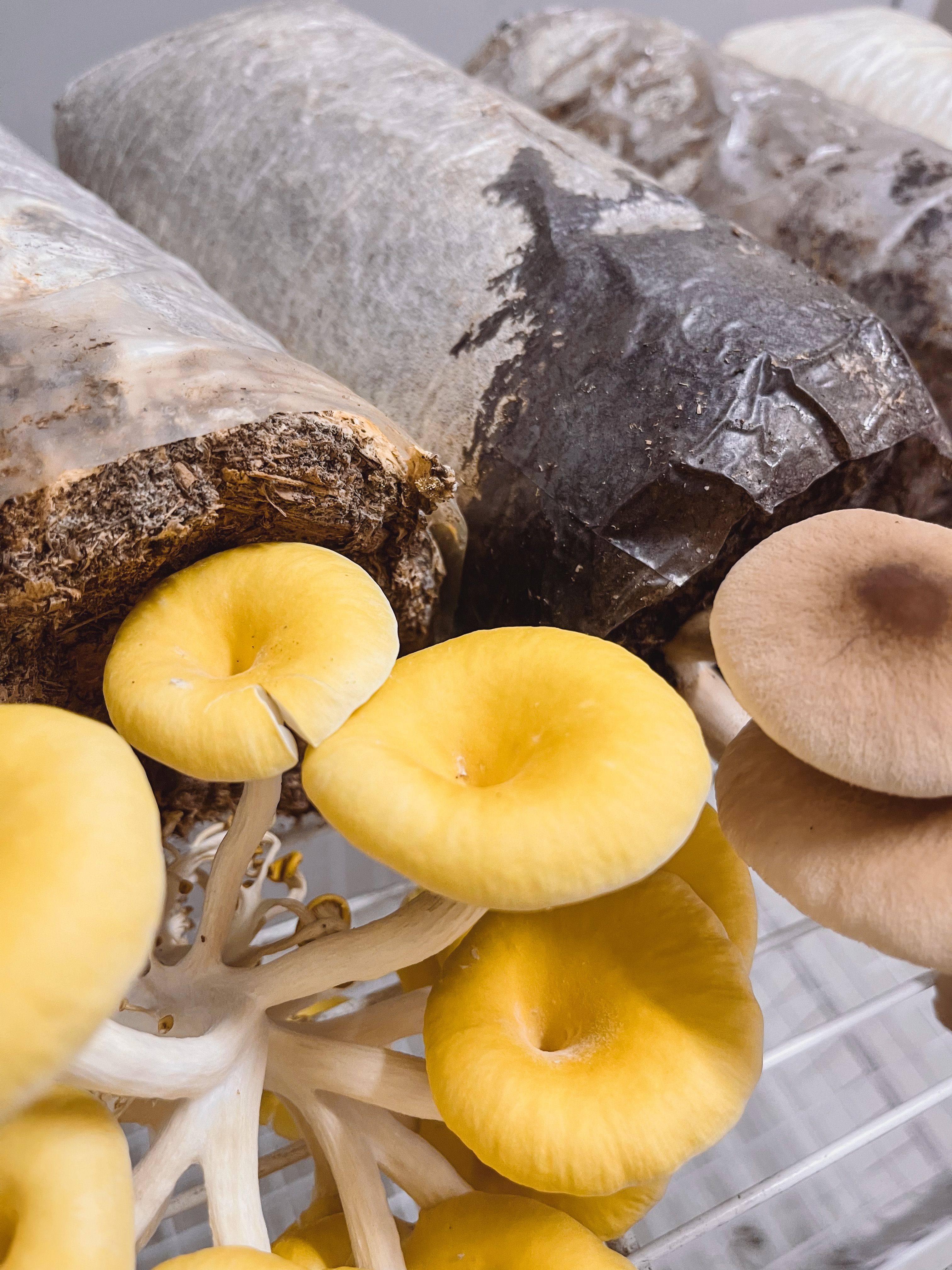
As far as the types of mushrooms Russell grows, he looked at button mushrooms, wood ear mushrooms, shiitake, straw and reishi. None of these were as environmentally friendly as oyster mushrooms.
Although he continues to experiment as he goes along, he’s currently growing four types of oyster mushrooms, the golden oyster mushroom, the pink oyster mushroom, the Phoenix oyster mushroom, and the common oyster mushroom.
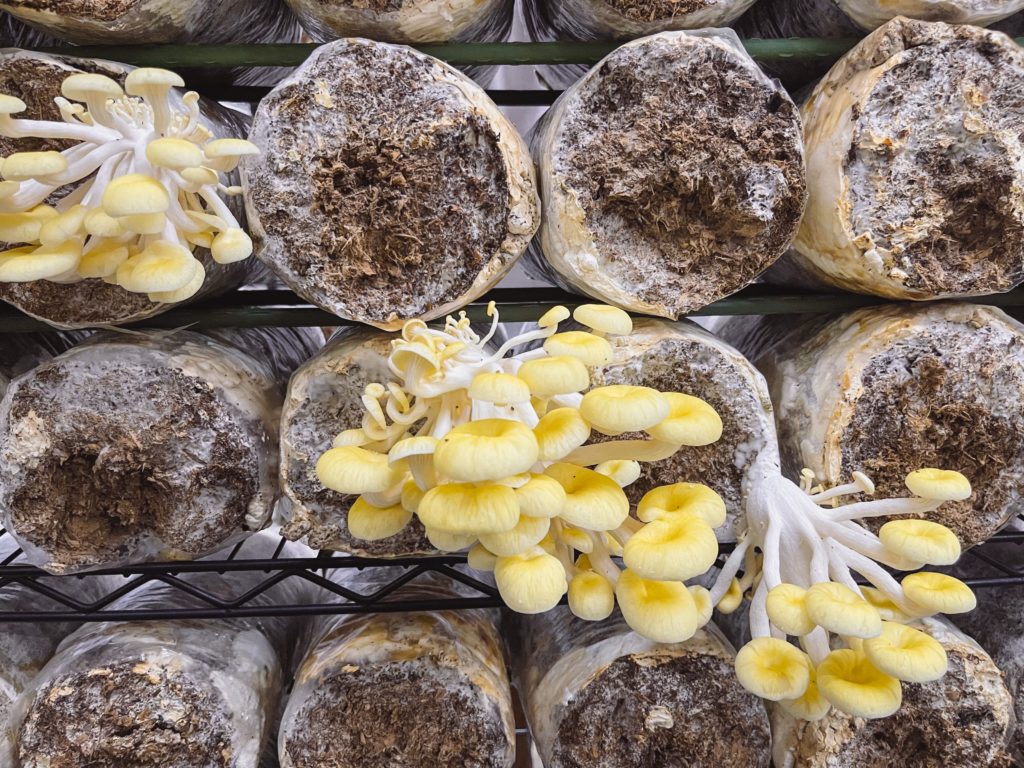
Once the mycelium has grown, the bags are put in another room, where they will start to grow and can be harvested in a few weeks.
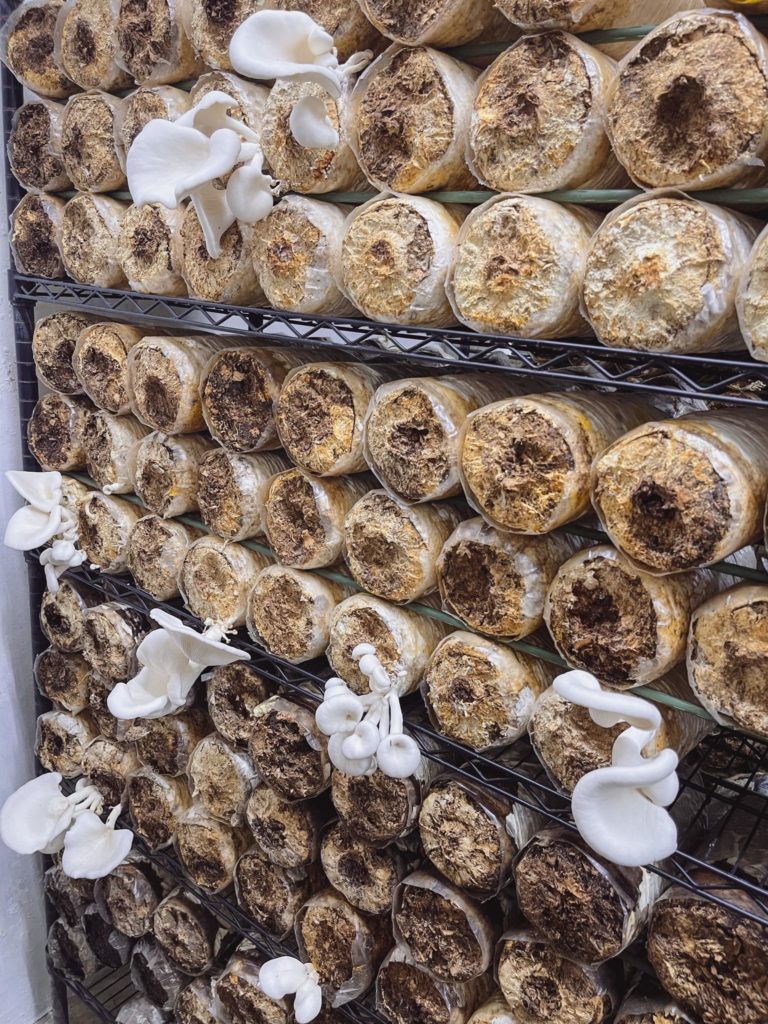
After our tour of the process and the rooms, we went back to our meeting room to make our own bag with compost and mushroom spores that we took home to wait and see if we will have some mushrooms in about a month.
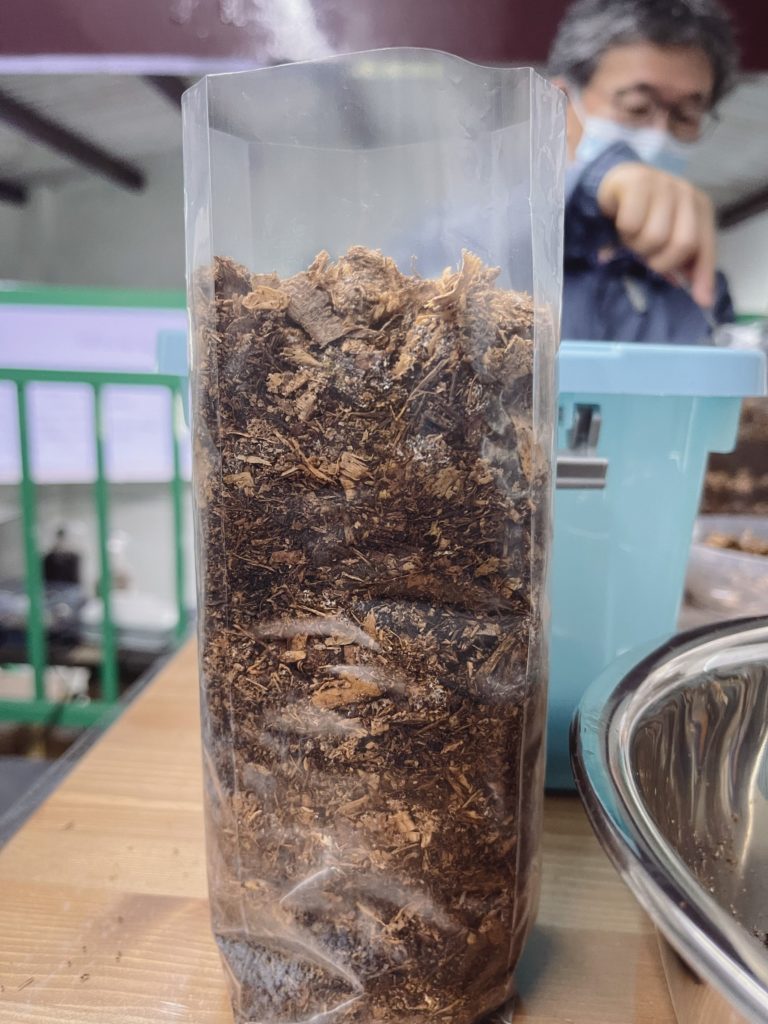
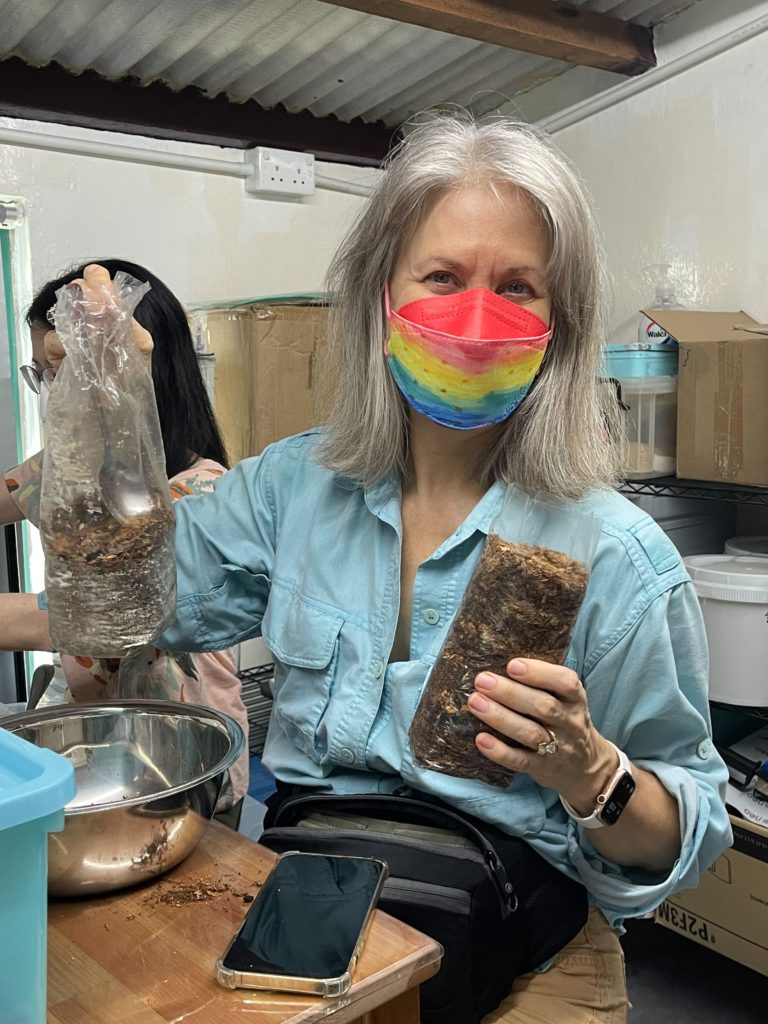
Listening to Russell’s journey creating Urban Mushroom, I see how his overarching drive around sustainability and promoting local food with a low carbon footprint comes through in everything he does. With 98% of our food imported in Hong Kong Russell is looking for opportunities to create a circular resource flow locally.
He sees how after we use something, our tendency is not to think about it. He rightly points out that even though we are not thinking about what happens to the items we use, they become some type of pollution. We don’t often think about how to reuse something, or what its second life could be.
He sees this in the coffee grounds. It’s first used for our coffee in the morning. Then it’s discarded. But actually, it’s a perfect medium to grow the mushrooms in. It has a second life and is part of a circular city economy.
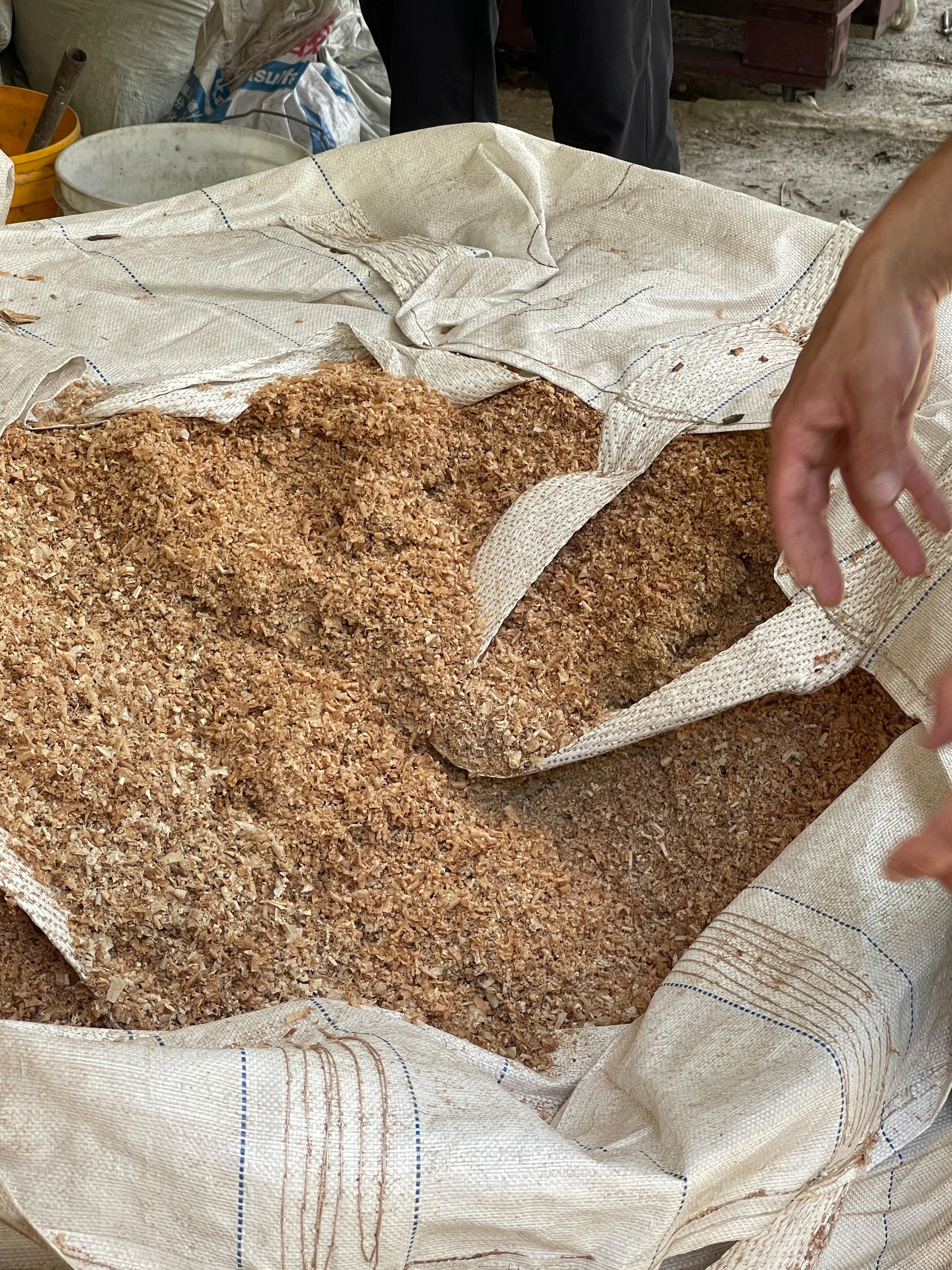
Russell continues to look for ways we can turn around more of our city flow of food waste that goes into landfill & incinerators and then on to pollutants into something like the traditional rural flow that turns food waste into fertiliser for the next crop.
Not only did we take away our bags with the potential to turn into our own mushrooms in a few weeks, we took away inspiration from Russell’s example that even in a large modern city like Hong Kong, there are ways to tackle and build a renewable way of life.
Michele Wisla is a Nutrition Coach and Founder of Our Conscious Kitchen. She helps her clients thrive eating a plant-based diet so they can show up energized every day, lose weight, & create the healthy life & body they want now and 20 years from now.
You can connect with her and download one of her favourite mushroom recipes here: